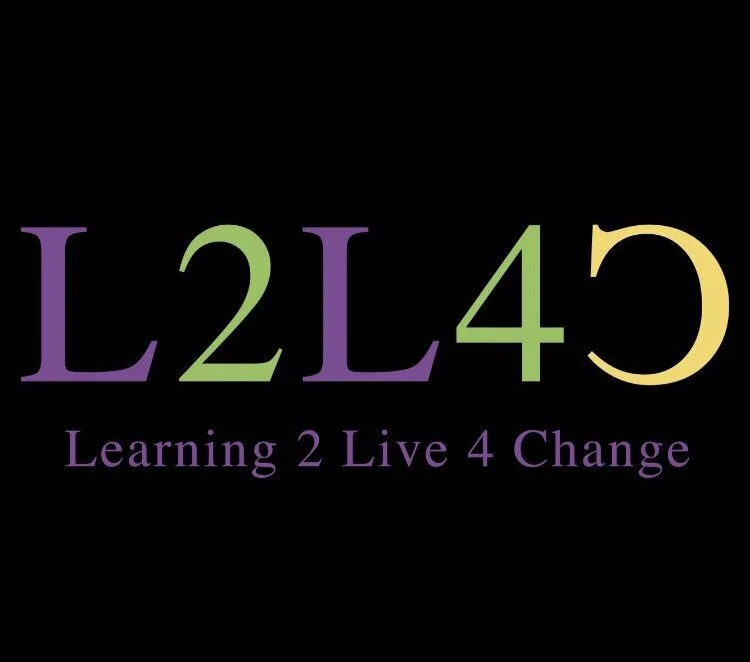Guiding our Growth
Before delving into some training modules today for my career in teaching and learner motivation, I prefaced my day with one of my favorite pastimes—professional development!
In doing so, I was reminded to keep Bloom’s Taxonomy (a relevant theory of steps used in our education system) in mind, but to remember that, more specifically, Benjamin Bloom focused on mastery of learning. Mastery of learning requires tapping into “varied experiences at multiple cognitive levels,” building a strong foundation of knowledge, and making sure that instruction focuses on what someone “can do with the knowledge” (Fisher & Fisher, 2018, p. 38).
But, Shalana, why are you talking about Bloom’s educational theory and mastering learning on Gold Talk??
Great question! Because, we can apply it to our individual lives outside of the education system with journaling.
At Learning 2 Live 4 Change we consistently talk about journaling. Journaling, journaling, keep on journaling!
Change involves mastering new habits, new skills, and new thought processes. One way to begin that journey, re-begin that journey (because, let’s face it—change is hard), or keep our momentum strong and our mind determined is to have an active space for reflection, new information, the exciting and the not-so-exciting moments, and a record that proves who we were yesterday versus who we were a year ago (or five years ago).
Today, let’s incorporate a Gold Talk Challenge for Change!
For Those Who Journal: If you already have a weekly journaling schedule, consider this blog post about mastering learning through deeper understanding of information the next time your journaling. Write about how new information you’ve learned recently in your daily life changed your perspective on something (such as understanding why something must be done in a certain way or why someone feels a certain way about something) and how it helped you do something more effectively. Include a personal definition of “mastering our lives with a growth mindset.”
For Those Who Don’t Journal: If you aren’t journaling or have stopped journaling—grab a journal, notebook, or scrap paper you can put away in a safe place. Place today’s date at the top in either the right or left-hand corner. Step 1. In your own words, define “mastery of learning.” Step 2. Write about one (1) thing you want to master that will bring positive change in your life and two (2) things you can do to achieve that goal. Step 3. Create a journaling schedule that fits into your life.
Example:
September 29, 2021
Today, I read a blog post about mastery of learning and how writing in a journal could help me change my life. It was interesting, so I thought why not give it a try?
First, I’m going to define “mastery of learning” in my own words. Mastery of learning might be taking relevant steps in my life to understand what I learn at a deeper level through my experiences and a continuous curiosity to seek more information, and it might mean being able to apply what I’ve learned in real life.
One thing that I want to master is using writing in my journal regularly so that I can look back on what I wrote over time to see what I learned, how I felt at different times, and how far I’ve come in my life and my career. Two things I can do to achieve mastering journal writing is creating a journal writing schedule and sticking with it no matter what, and the second thing I can do is research how other people reflect on their days and their work through writing.
For a writing schedule, I definitely can’t write every day right now, but I can probably do it once a week. The best day right now would be Friday, and I can use it as time to reflect on everything I did and learned during the week before the weekend starts. So, every Friday after dinner but before bed, I’ll write in my journal—maybe just a page or two.
Journal Schedule : Fridays between 9:30 PM - 10:30 PM.
Short and simple! Right? Now, you try!
Be sure to comment down below with any tips, tricks, or experiences about living and learning for change!
And, let’s talk on Gold Talk!
References
Fisher, M. & Fisher, E. (2018, Nov.). Hacking instructional design: 33 extraordinary ways to create a contemporary curriculum. Times 10 Publications.
